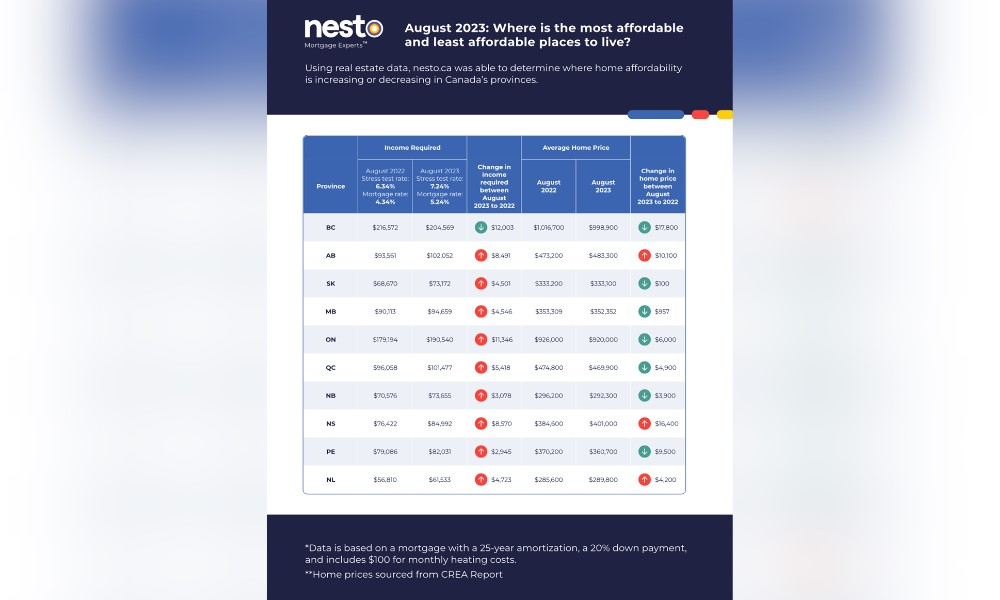Nearly all provinces also saw increases in the income needed to purchase an average-priced home

Any improvement in housing affordability that Canadians might have expected in July ended up being more of a muted development, according to a new report by nesto.
“While we logged a notable decline in home prices across seven of 10 provinces, income affordability only improved in one out of 10 provinces due to increased mortgage interest rates,” nesto said.
At the same time, the report said that nine out of 10 provinces saw increases in the income needed to purchase an average-priced home.
Citing data from the Canadian Real Estate Association, nesto said that while sales activity slowed down by 0.7% on a monthly basis in July, the aggregate composite price went up by 1.1% during the same period.
nesto said that this was a “larger-than-normal increase” for a single month, while still being only half as large as the gains seen in April, May, and June.
“The market appears to be responding to the Bank of Canada rate hike in mid-July and longer-lasting above-target inflation, with signs of sales and price growth tapering off further in August,” nesto said.
The CMHC had stated that 5.8 million homes needed to be built by 2030 to restore housing affordability, but the current pace is on track to reach only 2.3 million.
— Canadian Mortgage Professional Magazine (@CMPmagazine) August 21, 2023
Read more: https://t.co/qqrkybS8H4#mortgageindustry #housingmarket #housingcrisis #affordability
What province saw an improvement in housing affordability in July?
British Columbia reported a $17,800 decrease in average home prices in July, which led to a $12,003 decline in the income needed (down to $204,569) to purchase an average-priced home.
However, nesto warned that the combination of elevated rates and improved affordability might pose a risk to markets like BC.
“As a result of rate increases, the higher qualifying rate used to determine one’s borrowing power in their mortgage application is counter-productive to the affordability gains recognized by the decreasing property values,” said Chase Belair, co-founder and principal broker of nesto.
“If the Bank of Canada decides to maintain the current policy rate and fixed rates stay flat or decrease, more Canadians should have an opportunity to enter the housing market.”




